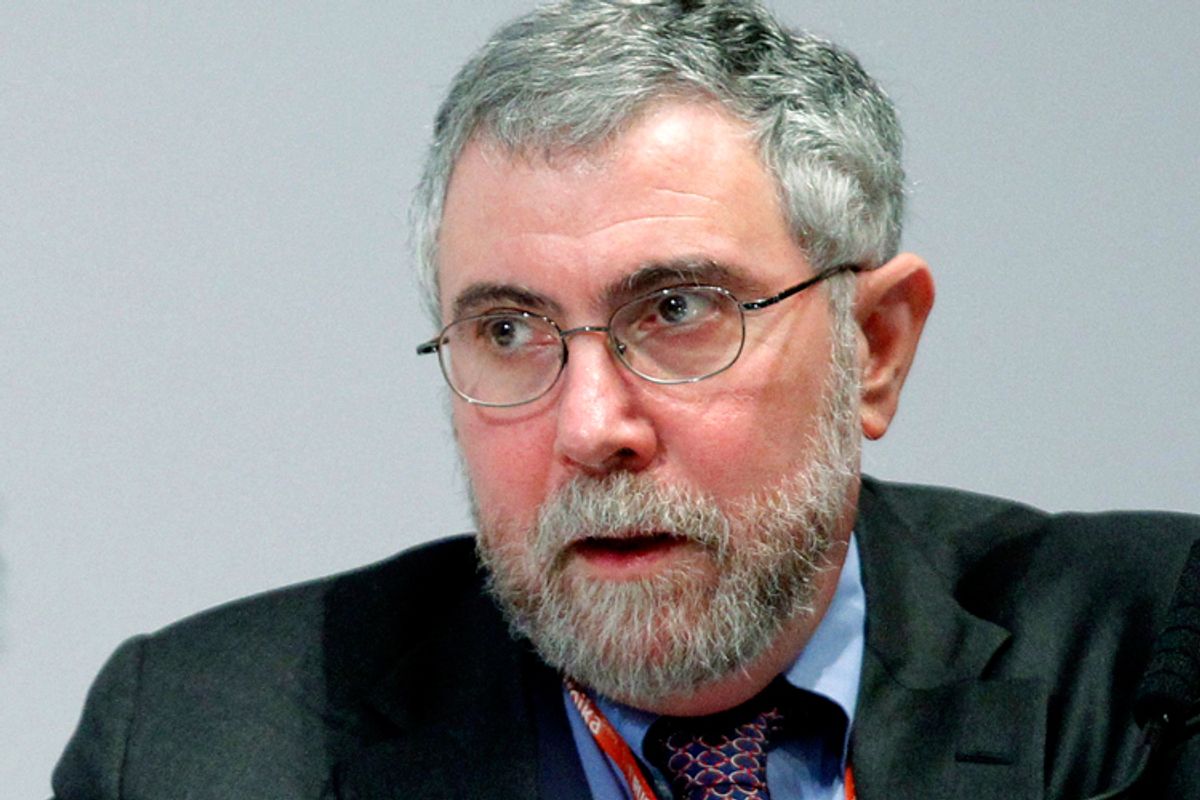The current standoff over Greece's debt payments threatens the seven-decade bid to forge greater European unity, economist Paul Krugman warns in the New York Times today.
Two weeks after Greek voters elected the anti-austerity Syriza party to power, the European Union approaches a "moment of truth" as German leaders fight back against the new Greek government's effort to reduce the indebted Mediterranean nation's payments to creditors, Krugman argues. Unfazed by the political shift in Greece, Germany insists that the country must continue making its debt payments in full, despite the crippling costs that austerity has already imposed on the Greek economy, to say nothing of the lives of Greek citizens, an alarming number of whom are committing suicide amid economic despair.
"[P]ulling the plug on Greece would pose enormous risks, not just to Europe’s economy, but to the whole European project, the 60-year effort to build peace and democracy through shared prosperity," Krugman writes. Further turmoil, he adds, could aid sinister forces like the Greek fascist party Golden Dawn.
Krugman blames the current confrontation on "political pandering" -- Germany's, that is:
Unfortunately, German politicians have never explained the math to their constituents. Instead, they’ve taken the lazy path: moralizing about the irresponsibility of borrowers, declaring that debts must and will be paid in full, playing into stereotypes about shiftless southern Europeans. And now that the Greek electorate has finally declared that it can take no more, German officials just keep repeating the same old lines.
From the German perspective, renegotiating Greece's debt payments is deeply unfair. Germany signed on to the euro currency zone only after expressing significant reservations; the price of Germany's ascension included a European Central Bank modeled on the stolid Bundesbank, a means of ensuring that fellow eurozone countries adhered to Germany's strict economic orthodoxy. For its part, Germany paid a price, joining a currency union that disadvantaged its export market and forced difficult labor market reforms.
Still, Krugman concludes, Germany must "wake up" to the implications of its hardline position -- or risk watching the continent's prized politico-economic union disintegrate.



Shares